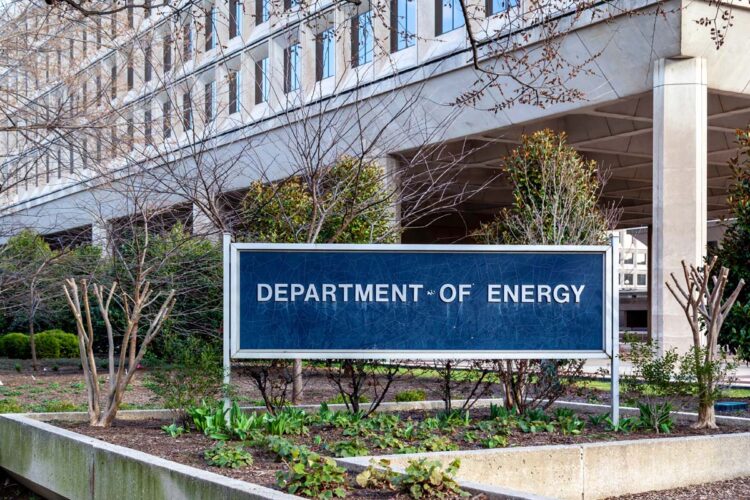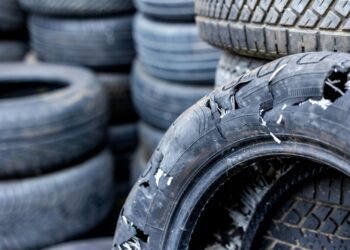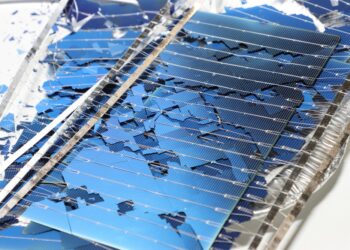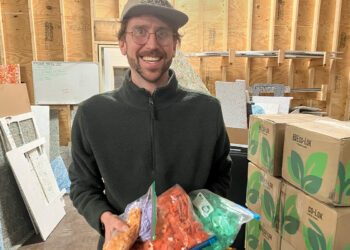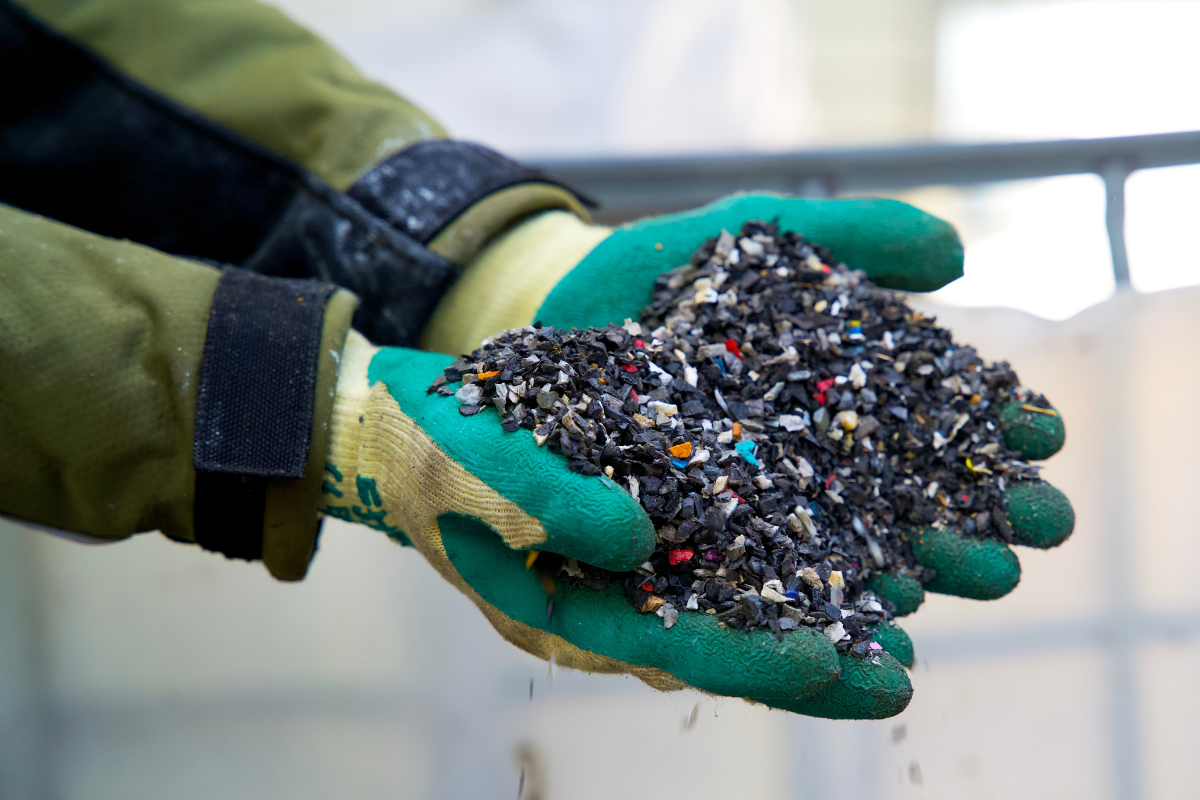Twenty teams have received $50,000 each from a U.S. Department of Energy competition aimed at extending the life cycle for such materials as electric vehicle batteries, packaging, textiles and construction materials.
The Re-X Before Recycling Prize recognizes innovative ways to extend product life by reusing, repairing, refurbishing, remanufacturing or repurposing before recycling. The DOE’s Advanced Materials and Manufacturing Technologies Office, AMMTO, administers the competition, which takes place in three phases.
In this first phase, participants identified solutions for extending product life. In the second phase, which closes Oct. 22, new and phase-one competitors will further advance their ideas. Up to 10 winners will each receive $150,000 in cash and $100,000 in technical assistance.
In the final phase, winners selected from phase two will demonstrate substantial progress toward implementing their idea in a viable Re-X supply chain that will continue beyond the prize period. Up to four teams will receive $500,000 in cash.
“The winning competitors showed us innovative solutions for extending the life of a diverse range of products, which will go a long way toward both decarbonizing our economy and reducing what goes into our landfills,” said Chris Saldaña, AMMTO director.
The winners are:
Bleckmann Circular Solution of Columbus, Ohio
Material: textiles
Project: Holistic closed-loop supply chain resource for apparel and textile companies, offering collection, repair, refurbishment and resale.
California Product Stewardship Council of Sacramento, California
Material: solar panels
Project: Establish a hub in partnership with cities/counties to increase resources for safe solar panel reuse.
Circular Route of Austin, Texas
Material: durable goods
Project: Circular hub system to collect durable goods – including furniture, mattresses and appliances – from such outlets as charities, junk haulers and moving companies, to share with a network of small businesses that can refurbish the items.
Doors Unhinged of Pittsburgh, Pennsylvania
Material: building materials
Project: Remanufacture doors by leaving core material intact while exterior surface can match new specifications.
Electra of Bellingham, Washington
Material: solar panels
Project: Product registry to trace life cycle management, collection and logistics for solar panels, via customer registration upon installation.
Jack Paulin Lamuraglia of Binghamton, New York
Material: electronics
Project: Technology to disassemble electronics and refurbish the integrated circuits, for sale to manufacturers to use in new electronics.
Lifecycle Building Center of Atlanta, Georgia
Material: lumber
Project: Produce nail-laminated timber for use in affordable housing projects from salvaged lumber used in the state’s motion picture industry.
Llink Technologies of Brown City, Michigan
Material: automotive headlights
Project: Manufacture new, warrantied headlights using components from lights damaged in auto collisions.
Posh Electric of Hayward, California
Material: EV batteries
Project: Repurposing lithium iron phosphate batteries from electric vehicles for long-term energy storage.
RecycleBalls of South Burlington, Vermont
Material: tennis balls
Project: Create a national recovery community and ecosystem for used tennis balls. The balls would be sorted based on condition, then routed for direct reuse on courts or in classrooms, or remanufacturing via repressurizing.
ReJoule Incorporated of Signal Hill, California
Material: EV batteries
Project: Assess EV battery health directly via charging port, without removing it from the vehicle.
Renewable Parts of Humble, Texas
Material: wind turbine parts
Project: Refurbish and resell wind turbine parts, to help reduce lead times, lower carbon footprints and lower costs for wind energy developers.
RePurpose Energy of Fairfield, California
Material: EV batteries
Project: Use machine learning to test battery health, sort and repurpose EV batteries to commercial and utility energy storage systems.
RESOLVE of Washington, D.C.
Material: reusable packaging
Project: Pilot testing of the PR3 Reusable Packaging Standards, to help ensure that reusable cups can be collected, washed, redistributed and reused. The standards also will help ensure that these systems are accessible to low-income and underserved communities.
Rochester Institute of Technology of Rochester, New York
Material: office furniture
Project: Remanufacture office furniture to help reduce the flow of furniture into municipal waste streams. RIT is working on a hub-and-spoke network starting with Seneca Holdings and scaling that network to Tribal nations across the U.S.
Rockwind Venture Partners of Rockford, Illinois
Material: wind turbine parts
Project: Refurbish decommissioned wind turbines and reuse them in distributed energy applications.
Sankofa Lumber of Portland, Oregon
Material: lumber
Project: Establish a hub to enable direct reuse of construction wood, bringing together small businesses to share resources, create business opportunities and foster workforce development.
Shorepower Technologies of Hillsboro, Oregon
Material: EV batteries
Project: Develop a transportable fast-charging system for EVs using repurposed batteries, requiring less grid power than traditional fast charging and avoiding the need for utility upgrades. The team focuses on making EV charging more affordable in disadvantaged communities.
The Welman Project of Fort Worth, Texas
Material: business supplies
Project: Reroute surplus business materials to classrooms in Fort Worth, to provide teachers free, curriculum-enhancing materials. A creative reuse craft store serves to sell the materials classrooms do not need, helping to ensure economic viability of this supply chain.
Upstream Policy Institute of Damariscotta, Maine
Material: food and beverage packaging
Project: Work to catalyze adoption of reusable food and beverage containers by developing forward-facing, high-volume contracts to promote build-out of public infrastructure needed to scale reuse systems.







